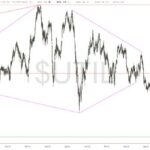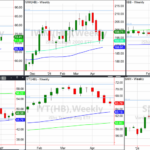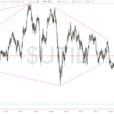
<< Read More: Passive Negligence Part I
Almost a year ago, we stumbled upon a topic that is currently generating much discussion in the financial media. In Mm Mm Good, published August 2016, we highlighted the Campbell Soup Company (CPB) and the utility sector to show how yield-starved investors were chasing dividend stocks to dangerously high valuations. The following quote from the article highlights the risk inherent in CPB’s valuation:
“This concept of a no-growth company with soaring valuations is alarming. The price of CPB would have to drop 30% to return to its post-recession average P/E. If that were to occur, it would take 16 years’ worth of dividend payments to recoup the price loss, assuming dividends remain stable”.
When writing that article, we assumed that a hunger for yield was the primary driver of excessive valuations in those relatively safer sectors. We did acknowledge, however, that there were other factors. Unbeknownst to us at the time, the shift from active to passive investing was one such factor playing a growing role in creating valuation divergences.
We followed up the article in November of 2016 with Passive Negligence. This sequel, of sorts, discussed valuation divergences and economic inefficiencies occurring as a result of the growing popularity in passive investing and the related decline in value/active management strategies. The following quote summed up a concern we had then and one that is even more troubling today: “Typically, market index changes are the result of the movement in underlying constituents. Today, market index changes are the driver of the underlying constituents”.
Valuation Regulator
Passive index funds can play an important role in portfolio management. However, when such passive styles of investing grow in popularity to the point that they are overly influential in setting prices, problems tend to arise. In fact, the ongoing massive shift of capital toward passive strategies argues that the healthy process of price discovery is being destroyed.














